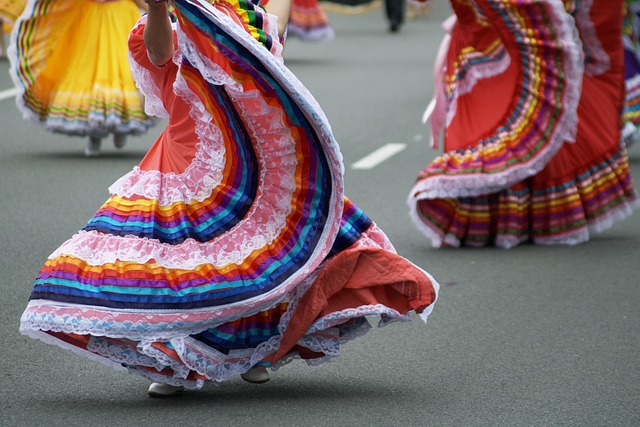Event planning for local businesses thrives on understanding community needs through surveys and conversations, leading to events like kid-friendly farmers markets or business networking sessions. Setting clear goals, such as product promotion or community fostering, attracts sponsors and participants. Key venue and date selection involves accommodating event size, avoiding conflicts, and securing advance bookings. Diverse teams with logistics, marketing, and volunteer expertise ensure collaboration. Engaging agendas featuring interactive elements like workshops create memorable experiences. Effective digital and traditional promotion strategies boost brand visibility and attendance for inclusive, successful community events.
Community events bring people together, fostering connections that strengthen local businesses. This guide is your compass for seamless event organization, tailored specifically for local business owners. From understanding your audience and setting clear goals, to choosing venues, building teams, crafting engaging agendas, and promoting your event effectively, we’ll equip you with the tools to plan memorable gatherings that thrive on community spirit. Elevate your local scene – let’s transform ideas into impactful events.
- Understanding Your Community: Know Your Audience
- Setting Clear Goals for Your Event
- Choosing the Right Venue and Date
- Building a Strong Event Planning Team
- Creating an Engaging Agenda and Theme
- Promoting and Marketing Your Community Event Effectively
Understanding Your Community: Know Your Audience

Understanding your community is a crucial step in successful event planning, especially for local businesses looking to engage their customers and neighbors. Knowing your audience means tailoring events to meet their interests, needs, and preferences. For instance, a local farmers market might attract families with children, so offering live music, kid-friendly activities, and fresh produce would be ideal. In contrast, a networking event for entrepreneurs would cater to working professionals with topics like business development and industry insights.
Event planners should conduct surveys, analyze existing community data, and engage in conversations to gain insights into the demographics, culture, and events that resonate most with their local community. This knowledge ensures that each gathering is inclusive, well-received, and contributes positively to the social fabric of the area, fostering a stronger sense of community for everyone involved—a key aspect of event planning for local businesses.
Setting Clear Goals for Your Event

When organizing community events, setting clear goals is essential for event planning for local businesses. Begin by defining the purpose and objectives; is it to promote a new product, engage with customers, or foster a sense of community? This step ensures that every aspect of the event aligns with your main goal, making it easier to manage and measure success.
Having well-defined goals also helps attract sponsors and partners who share similar values and interests. It allows you to create a more focused event that resonates with your target audience, ultimately enhancing participation and satisfaction. Whether it’s a local business trade show or a community festival, clear goals provide a roadmap for a successful and memorable gathering.
Choosing the Right Venue and Date

When planning community events, selecting the perfect venue and date is a crucial step in Event Planning for Local Businesses. The ideal location should cater to your event’s size, purpose, and target audience. Consider venues that are easily accessible, have ample parking space, and offer suitable amenities like seating arrangements, audio-visual equipment, and catering options. A well-chosen venue sets the tone for the entire event, ensuring a comfortable and enjoyable experience for attendees.
The date selection process involves balancing several factors. Check local calendars for existing community events or holidays to avoid scheduling conflicts. Additionally, consider the weather conditions typical for that time of year to guarantee an outdoor event’s success. It’s best to book your venue in advance, especially during peak seasons, to secure your preferred date and ensure availability.
Building a Strong Event Planning Team

A successful community event relies on a well-organized and dedicated planning team. When organizing events for local businesses, fostering collaboration is key. Assemble a diverse group with complementary skills—from logistics and marketing experts to volunteers with strong community connections. Each member brings unique insights and capabilities, ensuring all aspects of the event are covered effectively.
Encourage open communication and clear roles within the team. Regular meetings and a centralized planning platform can help streamline processes. By leveraging the collective power of the group, event planners can create memorable experiences that engage both businesses and the local community, fostering a stronger sense of unity and collaboration among participants.
Creating an Engaging Agenda and Theme

Creating an engaging agenda is key to a successful event that captivates local businesses and their communities. A well-structured theme ties the whole experience together, making it memorable for attendees. When planning, start by identifying the main objectives of the event. Is it to network, educate, or celebrate? Crafting a clear purpose guides the agenda creation process. For instance, if the focus is on networking, allocate ample time slots for icebreakers and structured mingling sessions.
Incorporate interactive elements that align with your theme to keep energy levels high. This could include panel discussions, workshops, or even games relevant to local business interests. By combining a thoughtful agenda with a compelling theme, you can transform an ordinary gathering into an exciting event that fosters community engagement for local businesses.
Promoting and Marketing Your Community Event Effectively

Effective event promotion is key to a successful community gathering, especially for local businesses looking to engage their customers and enhance their brand visibility. Utilizing digital marketing strategies is essential in reaching a wide audience. Create dedicated event pages on social media platforms, sharing detailed information about the event’s purpose, date, time, location, and any special attractions. Regularly update these pages with behind-the-scenes content, early bird registration reminders, and testimonials from previous events to build anticipation.
Email marketing is another powerful tool; send personalized invites to your existing customer base, offering exclusive discounts or early access to tickets. Collaborate with local influencers or bloggers who can help spread the word and attract a broader demographic. Traditional methods like local newspaper ads, flyers distributed in strategic locations around the community, and partnerships with community radio stations or local businesses can also significantly boost event awareness among your target audience, ensuring an inclusive and well-attended community celebration.
Organizing community events has never been easier, thanks to these straightforward steps. By understanding your audience, setting clear goals, choosing the right venue, building a dedicated team, creating an engaging agenda, and promoting effectively, you can create memorable experiences that foster connections within your local business landscape. Implement these strategies for successful event planning that resonates with your community.
